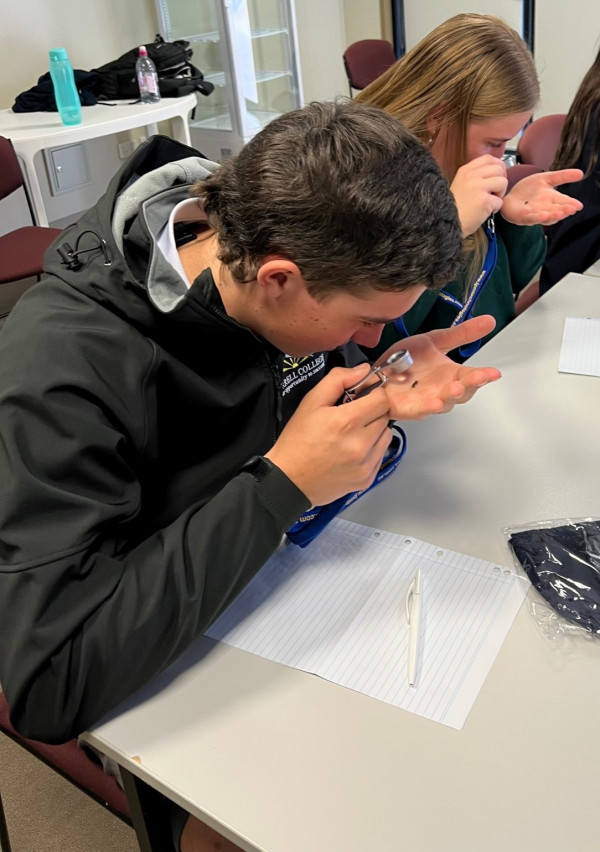Each farmer in the project has chosen a paddock to use IPM strategies to control insects for the next three years to see whether, and how, IPM can be used in broadacre cropping systems to improve profitability and decrease reliance on pesticides.
Participating farmers and their agronomists discussed the pest issues they have been finding in paddocks and how best to manage these using IPM.
The current major pest is slugs.
In the lead-up to the meeting, pitfall traps were placed in each of the farmer’s paddocks to capture insects to gain an insight into what insects were present.
These were then counted and displayed, which enabled participants to gain a truer understanding of what pests and beneficials are in their system.
The project also aims to discover how using fewer broad-spectrum insecticides can help boost beneficials and hence increase natural control of the pests, which will be an important part of the IPM strategy.
Jessica says it was about getting growers to think about their management practices differently, for example checking paddocks weekly, factoring in the insects present and moving away from spraying “just in case”.
“If we keep the beneficials in the paddock, these can do a lot of the work for us,” she says.
“We are not saying don’t spray, just be more selective and start planning earlier.”
Dr Horne agrees, saying that approach has the potential to “be more cost-effective long term”.
The group will continue to communicate regularly regarding IPM strategies through the next two years.
Dr Horne and Jessica also spoke to Birchip P-12 College and Tyrrell College agriculture students about IPM strategies and how the approach has several layers, including biological and cultural in addition to selective insecticides in an effort to rebalance the pest-beneficial ratio in broadacre cropping systems.
Students had the opportunity to identify different insects, including how to differentiate between pests and beneficials, an integral part of the IPM approach.
BCG chief executive Fiona Best says it is fantastic that Birchip P-12 and Tyrrell College have been able to capitalise on the entomologists’ visit.
“They are specialists in their field and BCG are proud to be able to provide our up-and-coming agriculturists access to such prestigious presenters, foster positive experiences and support their ongoing learning in this area,” she says.
















